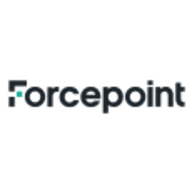


GitGuardian Platform and Forcepoint Risk Adaptive Protection compete in the data loss prevention category. GitGuardian is advantageous for more intuitive pricing and efficient support, while Forcepoint stands out with an advanced feature set, offering a comprehensive choice for wider security needs.
Features: GitGuardian Platform is recognized for its robust credential scanning, real-time alerting, and secrets detection. Forcepoint Risk Adaptive Protection includes dynamic risk management, contextual analysis, and a comprehensive adaptive protection approach, emphasizing a broader security framework.
Ease of Deployment and Customer Service: GitGuardian Platform is preferred for its straightforward deployment process and responsive support team. Forcepoint, however, involves a more complex setup but offers extensive resources and training options, providing depth in deployment features.
Pricing and ROI: GitGuardian Platform is seen as more cost-effective with a quicker ROI due to its lower initial costs. In contrast, Forcepoint Risk Adaptive Protection has a higher initial cost but is perceived to deliver high value with long-term benefits through its comprehensive DLP solutions.



Cloudflare is a highly-regarded Content Delivery Network (CDN) and a Distributed Denial-of-Service (DDoS) protection solution. The robust global connectivity cloud platform that is Cloudflare ensures users are able to connect to the Internet quickly, securely, and reliably. Cloudflare is one of the world's largest networks in the marketplace today. Using Cloudflare, businesses, educational entities, NGOs, vloggers, bloggers, and anyone else with an internet presence can experience more secure, faster websites and applications.
Currently, there are millions of Internet locations on Cloudflare, and the Cloudflare network
continues to grow every day by the thousands. The solution is able to fulfill the requests for
millions of websites seamlessly and serves on average 45 million HTTP requests per second.
Cloudflare has safe, secure data centers in close to 300 cities worldwide to ensure every
client request is filled as quickly as possible. It is Cloudflare’s edge network that makes this
possible by keeping content and other services as close to each client as possible, so the
information requests are always only seconds away.
Many organizations that work in democracy, civil society, human rights, or the arts are able to
access Cloudflare's highest levels of protection for free via Project Galileo. Additionally, official
election websites can be secured from hacking and fraud through Cloudflare’s Project
Athenian, also at no additional cost.
Cloudflare can also help organizations of all sizes develop a robust zero-trust strategy to
ensure the highest levels of productivity and profitability. Employees, stakeholders, and end users have a greater level of satisfaction and overall improved user experience, which can, in
turn, result in higher revenues and overall ROI. Zero-trust and BYOD (bring your own device)
access ensure end users and employees always have the best resources and technology
available to them at all times.
Cloudflare benefits
Cloudflare has many benefits. Some of its most valuable benefits include:
- Faster load times
- Robust DNS security
- Intuitive cloud Web Application Firewall (WAF)
- Free universal SSL
- Image enhancement
- Automatic browser caching
- Next-generation cloud load balancer
- Accelerated Mobile Pages (AMP)
- Rate limiting
- Minification
- Zero-trust capabilities
- Cost-effective
- Reduced carbon footprint
Reviews from real users
“Many websites require an SSL certificate because they sell stuff and want SSL. Cloudflare
comes with an SSL certificate built in. It's automatic. You sign yourself up for Cloudflare, and
an SSL certificate automatically protects your website. If you have a connection between your
website and your host, the server, Cloudflare, and the host, you don't necessarily need a
certificate.” Spencer M., Owner at Tech Exchange
“What I like best about Cloudflare is that my company can use it to trace and manage
applications and monitor traffic. The solution tells you if there's a spike in traffic. Cloudflare
also sends you a link to check your equipment and deployment and track it through peering,
so it's a valuable tool.” Daniel P., Network Engineer at Ufinet
“The most valuable feature of Cloudflare is the GUI. You are able to control the solution very
well through the interface. There is a lot of functionality that is embedded in the service.” PeerSpot user, Competence Center Manager at a tech services company
Forcepoint Risk Adaptive Protection for DLP offers dynamic security measures tailored to data protection needs, ensuring sensitive information is safeguarded efficiently.
Forcepoint Risk Adaptive Protection for DLP is designed to provide a balanced approach to data loss prevention by adapting security measures based on real-time risk assessment. This innovative system prioritizes protecting sensitive information while allowing for seamless workflow integration, making it a suitable choice for organizations looking to enhance their data protection strategies.
What are the key features of Forcepoint Risk Adaptive Protection for DLP?Forcepoint Risk Adaptive Protection for DLP is particularly effective in industries with stringent data protection requirements such as healthcare, finance, and government. It adapts its security posture to the specific risks faced in these sectors, addressing compliance mandates and safeguarding sensitive information efficiently.
GitGuardian helps organizations detect and fix vulnerabilities in source code at every step of the software development lifecycle. With GitGuardian’s policy engine, security teams can monitor and enforce rules across their VCS, DevOps tools, and infrastructure-as-code configurations.
Widely adopted by developer communities, GitGuardian is used by more than 500,000 developers and is the #1 app in the security category on the GitHub Marketplace. GitGuardian is also trusted by leading companies, including Instacart, Genesys, Orange, Iress, Beyond Identity, NOW: Pensions, and Stedi.
GitGuardian Platform includes automated secrets detection and remediation. By reducing the risks of secrets exposure across the SDLC, GitGuardian helps software-driven organizations strengthen their security posture and comply with frameworks and standards.
Its detection engine is trained against more than a billion public GitHub commits every year, and it covers 350+ types of secrets such as API keys, database connection strings, private keys, certificates, and more.
GitGuardian brings security and development teams together with automated remediation playbooks and collaboration features to resolve incidents fast and in full. By pulling developers closer to the remediation process, organizations can achieve higher incident closing rates and shorter fix times.
The platform integrates across the DevOps toolchain, including native support for continuously scanning VCS platforms like GitHub, Gitlab, Azure DevOps and Bitbucket or CI/CD tools like Jenkins, CircleCI, Travis CI, GitLab pipelines, and many more. It also integrates with ticketing and messaging systems like Splunk, PagerDuty, Jira and Slack to support teams with their incident remediation workflows. GitGuardian is offered as a SaaS platform but can also be hosted on-premise for organizations operating in highly regulated industries or with strict data privacy requirements.
We monitor all Data Loss Prevention (DLP) reviews to prevent fraudulent reviews and keep review quality high. We do not post reviews by company employees or direct competitors. We validate each review for authenticity via cross-reference with LinkedIn, and personal follow-up with the reviewer when necessary.